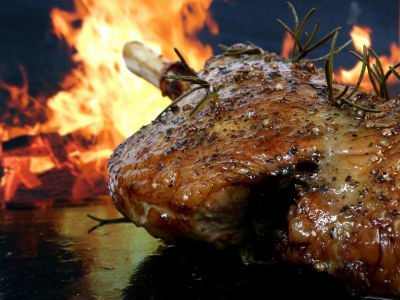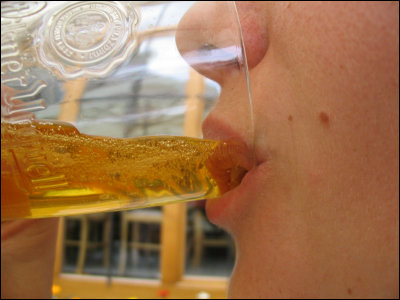"The steak at that time was delicious ..." It turns out that the greasy food is more memorable

Perhaps it seems that delicious things will remain in memory, but greasiness may play an important role in the memory of "food" rather than taste. Research has revealed that diets rich in lipids are more likely to remain in long-term memory than diets that are not.
When choosing shops or ordered items in addition to memory when eating out, it tends to choose greasy menus, is it to lead to obesity?
Details are as below.Dietary Fats Trigger Long-Term Memory Formation
Fat-rich foods are said to be triggers to form long-term memory on ingestion of that food.
this isBulletin of National Academy of SciencesPlanned for publicationUniversity of California, Irvine(UCI)It is expected that it will lead to a new approach to obesity and eating disorders, with the latest results of research on food fat and appetite control.
Professor Daniele Piomelli, a neuroscientist at UCI, formed a tag with Professor James McGaugh (University), the world's leading researcher in the field of learning and memory, to investigate the memory maintenance promotion effect of food fat.
Professor Piomelli's previous studies showed that oleic acid at the top of the small intestineOleoylethanolamide(OEA)It was transformed into a compound called OEA, which sent a signal to the brain to suppress hunger, and the mechanism of increased satiety was elucidated. An increase in the level of OEA in the body leads to loss of appetite and weight, and lowering blood cholesterol / triglyceride levels.
This time Professor Piomelli and Professor McGaugh discovered that OEA has a fixed memory (a process in which short term superficial memory turns into an important long - term memory). According to Prof. Piomelli the OEA is responsible for the memory of emotional experience in the brainAmygdalaIt seems to activate the signal which strengthens memory at.
Two experiments with rodents showed an improvement in memory by administration of OEA. Blocking the cellular receptor activated by OEA decreased the memory maintenance effect.
"OEA is part of a molecular adhesive that fixes memory," Professor Piomelli. "OEA may have played an important role in the evolutionary process of mammals, including early human beings, by strengthening memories of when and where they have had plenty of fat content."
Dietary fat is important for comprehensive health, such as helping the absorption of vitamins and protecting important organs. Modern people 's diet is rich in lipids, but not in humans' ancestors. Food rich in nature is extremely rare.
"Memorizing the place and situation where a diet rich in diet was done served as an important mechanism to survive early humanity.It is reasonable for mammals to have this ability. "Professor Piomelli says.
However, it seems that today's OEA memory strengthening action may not be as useful as it used to be. OEA brings a feeling of satiety after meals, but at the same time it forms a long-term desire for lipid-rich food, which can contribute to obesity.
According to Professor Piomelli, clinical trials are under way to control blood triglycerides (neutral fat) with drugs that work similar to OEA. It seems that this medicine is expected to be effective for memory disorder as well.
It may be a nuisance to those who care about body shape This fixed effect of memory by OEA. For health, it may be better to refrain from lipid, but for the first date or family anniversary etc, it may be good to remember greasy meals.
Related Posts:
in Note, Posted by darkhorse_log







